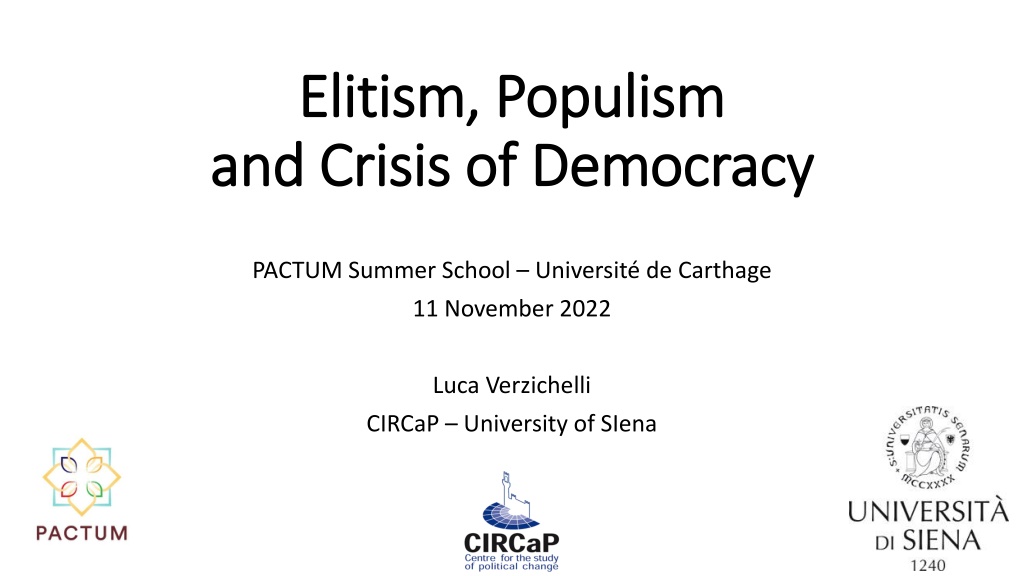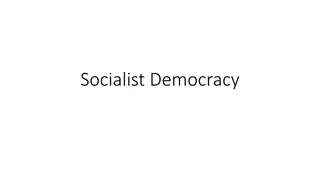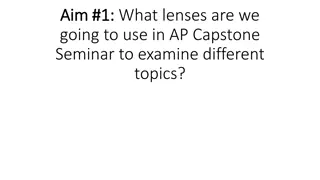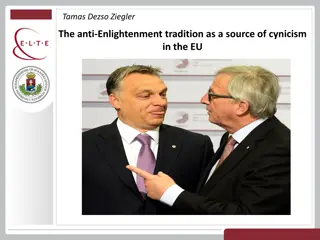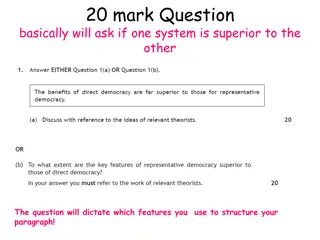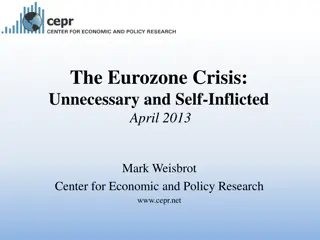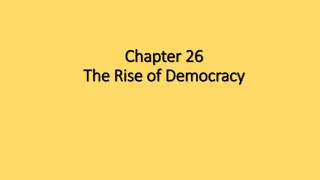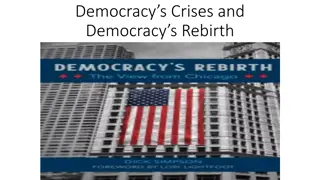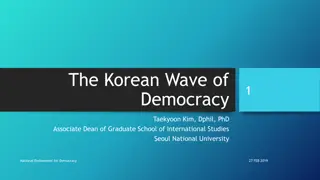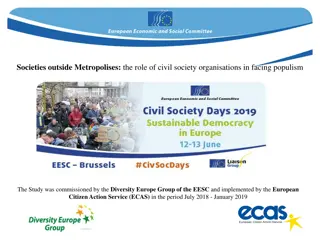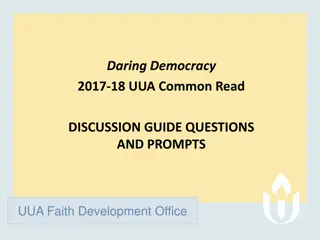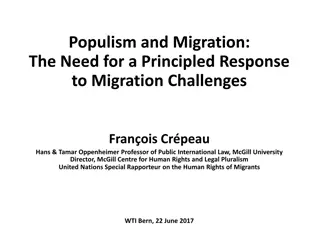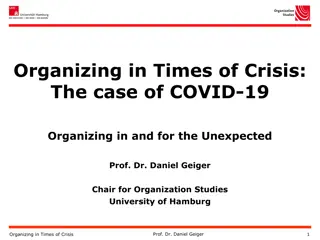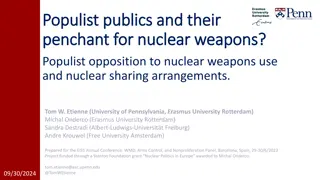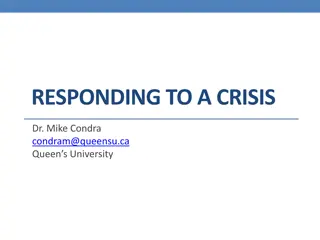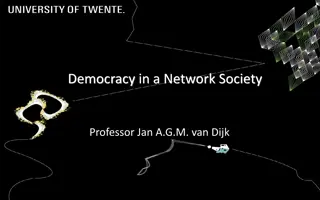Understanding Elitism and Populism in the Crisis of Democracy
Delve into the complexities of elitism and populism in democracy, exploring their conceptual roots, the contrast between them, and the paradoxical nature of elitist-populist dynamics. Discover how these ideologies shape political discourse and leadership styles, influencing the dynamics of democratic governance.
Download Presentation

Please find below an Image/Link to download the presentation.
The content on the website is provided AS IS for your information and personal use only. It may not be sold, licensed, or shared on other websites without obtaining consent from the author. Download presentation by click this link. If you encounter any issues during the download, it is possible that the publisher has removed the file from their server.
E N D
Presentation Transcript
Elitism Elitism, , Populism Populism and and Crisis Crisis of Democracy of Democracy PACTUM Summer School Universit de Carthage 11 November 2022 Luca Verzichelli CIRCaP University of SIena
Elitism Elitism vs. vs. Populism Populism. A long . A long debate debate Pre-Populist Zeitgeist Michael Kazin, The Populist Persuasion, New York: Basic Books, 1995. Christopher Lasch, The Revolt of the Elites and the Betrayal of Democracy. New York: W. W. Norton, 1995. Jack Hawyard, the Populist Challenge to litist Democracy in Europe, 1996 Meny-Sur l, democracy and the populist change, Palgrave, 2002 Post-Zeitgeist Cas Mudde, Populist Right Parties in Europe, Cambridge UP, 2008 Peter Mair, Ruling the void, London. Verso, 2013 Bertsou-Caramani, The technocratic challenge to democracy, London, Routledge, 2020
Conceptual Conceptual roots of roots of Elitism Elitism Traditional distinctions - developmental vs. elitist visions of liberal democracy (see Held) - Elitist vs. pluralistic vision of the political community (see Wright Mills) Schumpeter s (1942) definition of elitist democracy: a method by which people elect representatives in competitive elections to carry out their will Peter Bachrach's theory of democratic elitism (1967): several elites with diverging voices and interests exist and determine a necessary component of a well-functioning democracy. Sartori (1987) recalls the elitist vision introducing the notion of procedural democracy. Focus on the modalities with which governments are chosen. The empirical dimensions are similar to Dahl s Polyarchy . However, pluralism has to be conducted to responsibility (polyarchy with merit)
Populism Populismas as an anti an anti- - lite appeal lite appeal Different focus: - Discourse (for instance Laclau) - Political style (Kinght) - Thin-centred ideology (Mudde) - Alternative mobilisation (Meny & Surel) - Nativism/Sovereignism (Mudde, Ivaldi, Mazzoleni, )
The The Elitist Elitist- -Populist Populist paradox paradox ( (Mangset Mangset et al. 2019) et al. 2019) 1. Image of a strong leader 2. Direct relationship between people and leader 3. Legitimation by charismatic authority These elements lead to the path of neo-elitism: Legitimation of leaders who make decisions and take action based on their judgment Delegitimation of counter-leaders and oppositions Image of the leader as the only legitimate interpreter of the people s will
Empirical Empirical assessment assessment Far-right populist (and alternative mainstream) leaders get back to an elitist approach after entering the institutional arena Techno-populist tycoon tend to mix elitism and a culture of meritocracy (some) Economic /Left-Wing populist leaders/parties show a persisting anti-elitist approach after entering the institutional arena However, lots of variation within each cluster
Presence Presence of of Euroscepitc Euroscepitc Parties in Europe (2018) Parties in Europe (2018)
Presence Presence of of Eurosceptic Eurosceptic Government Government actors actors in Europe (2018) in Europe (2018)
